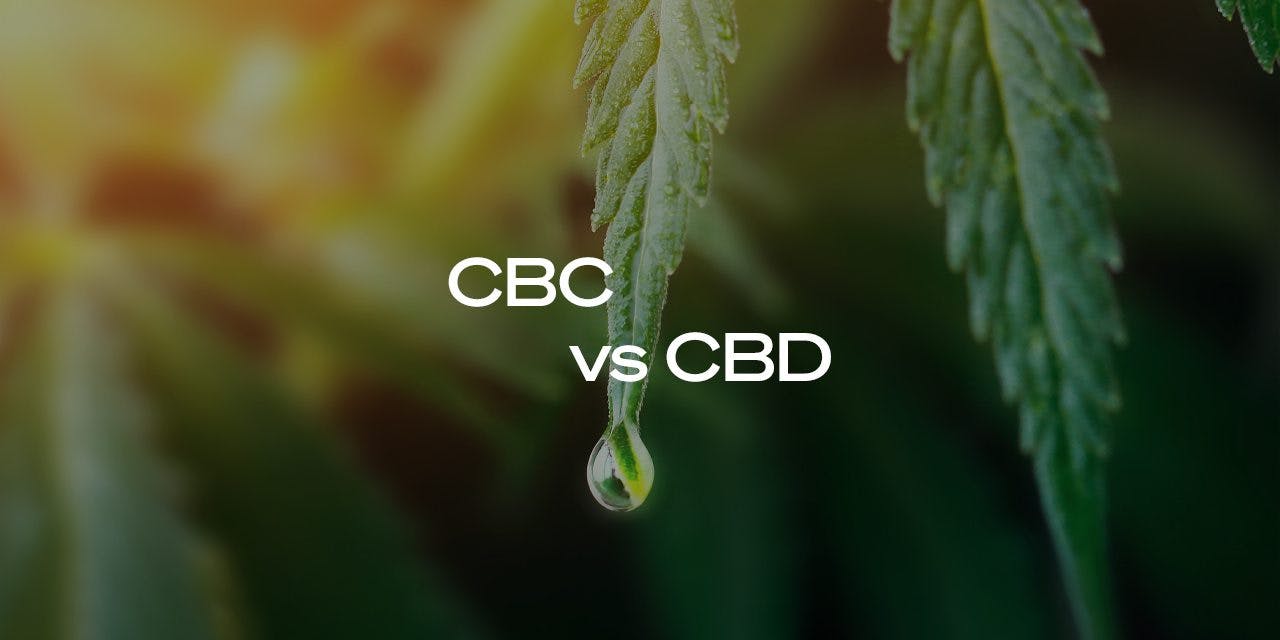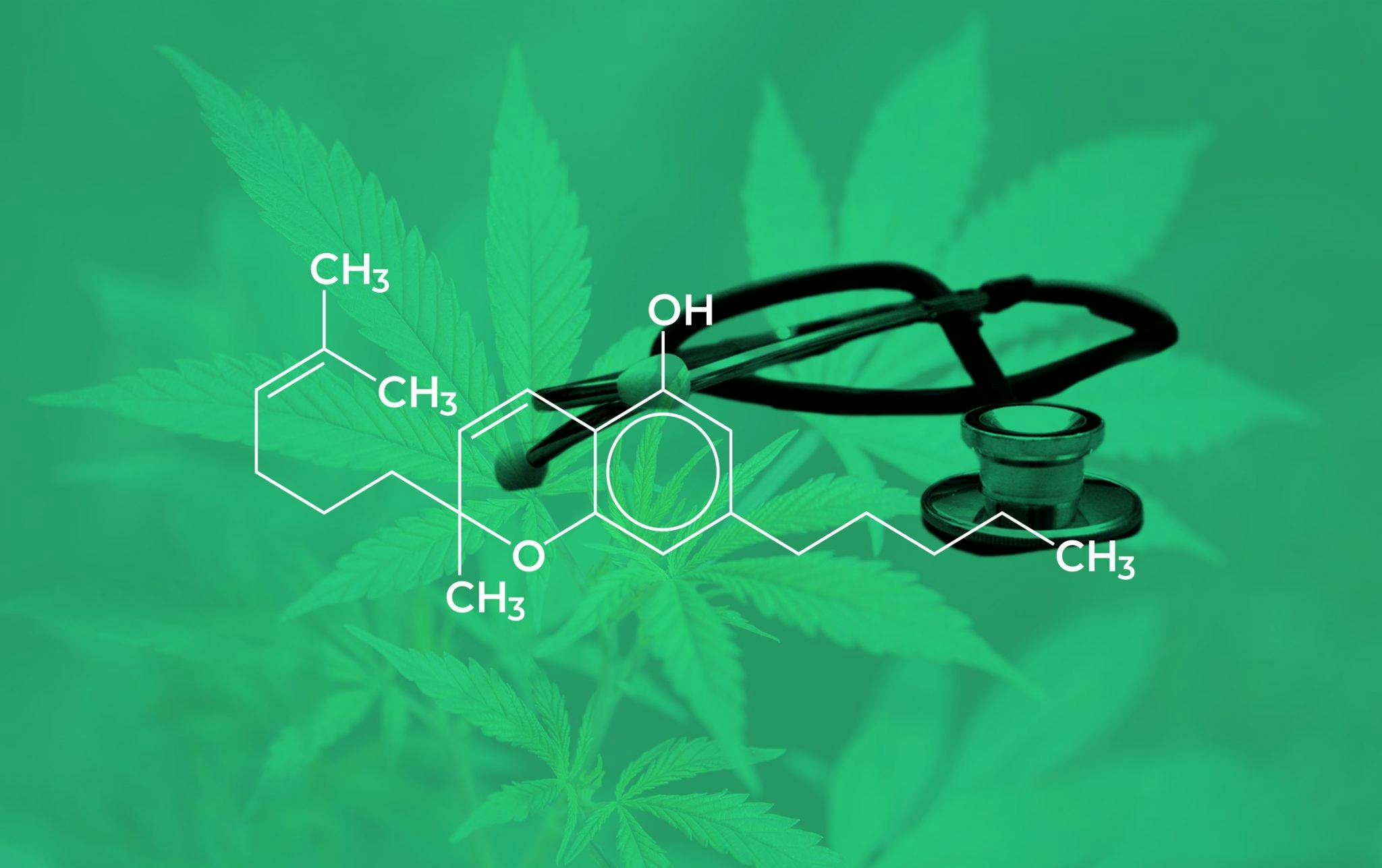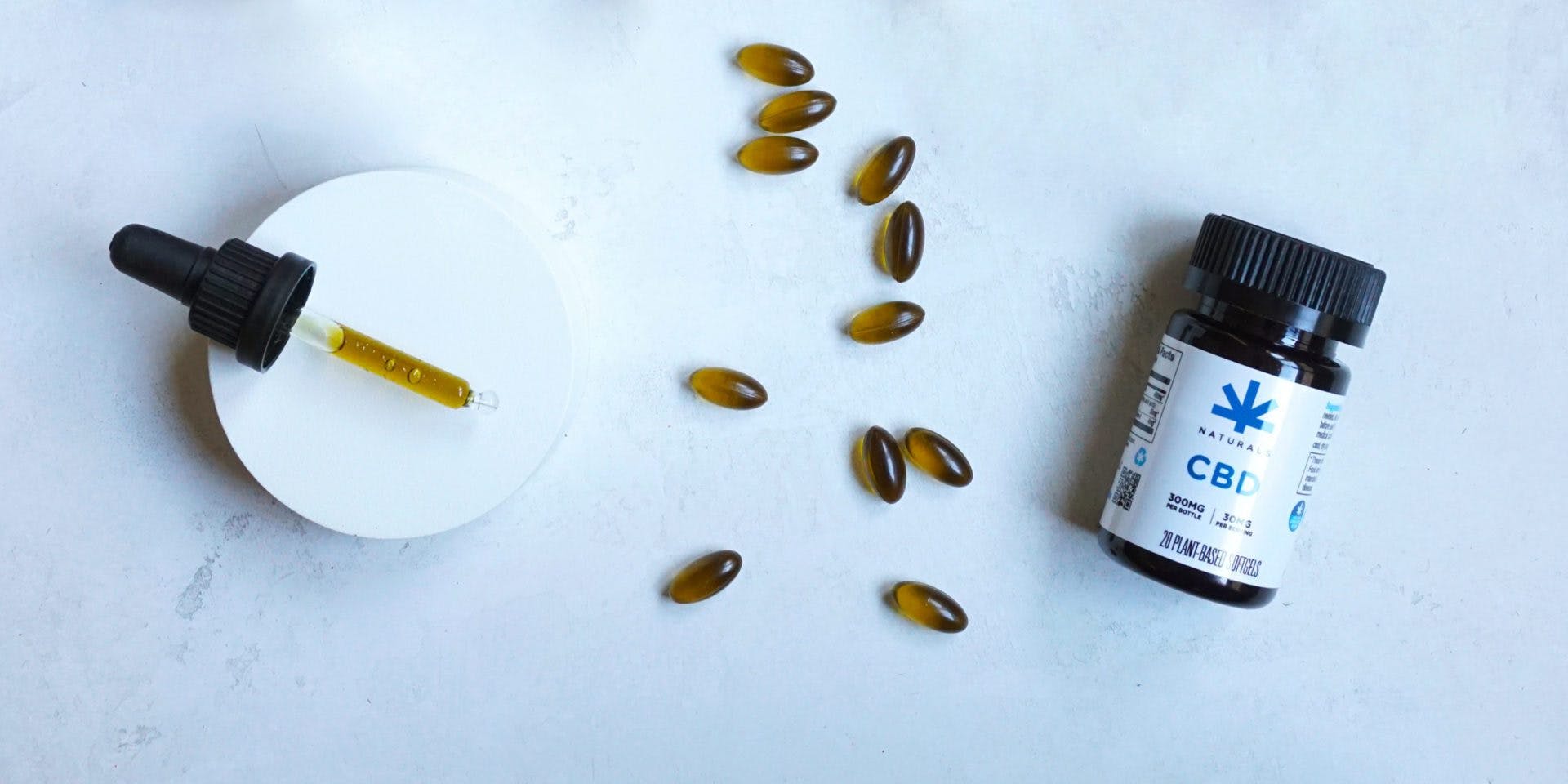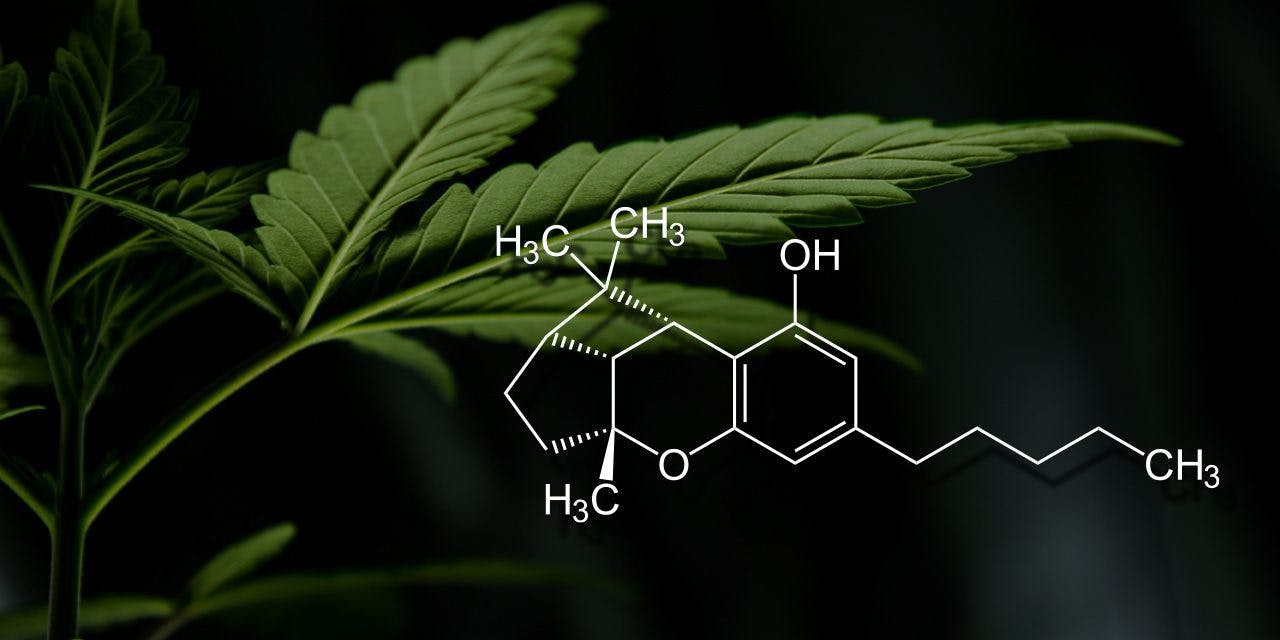CBC vs. CBD: Similarities and Differences

Article written by

Dipak HemrajHead of Research and Education
Content reviewed by

Dr. Lewis JasseyMedical Director - Pediatric Medicine
CBD (cannabidiol) and CBC (cannabichromene) are two major cannabinoids found in the cannabis plant. Both CBC and CBD have been researched for their promising neuroprotective potential and provide benefits without the intoxicating effects or “high” of THC. As for their differences, the main difference between CBC and CBD is how they bind to certain receptors in your body.
Let’s learn more about these popular cannabinoids and what the initial research says about their therapeutic benefits.
Get Your Medical Card
Connect with a licensed physician online in minutes.
What Is CBC?
CBC is a cannabinoid derived from the same source as other well-known cannabinoids like CBD and THC: cannabigerolic acid (CBGA).
CBGA is the precursor molecule to three major cannabinoid groups derived from cannabis plants. These three cannabinoids are cannabichromenic acid (CBCA), cannabidiolic acid (CBDA), and tetrahydrocannabinolic acid (THCA). In the case of CBC, CBGA is converted to cannabichromene carboxylic acid (CBCA) and then to CBC following exposure to ultraviolet light or heat.
Download Free Guide to CBC
How It Works
CBC is a nonintoxicating cannabinoid and does not produce a “high” like other compounds such as THC. It also does not bind strongly to CB1 cannabinoid receptors within the brain; however, it does bind strongly to different types of receptors found within the body.
These receptors include the transient receptor potential ankyrin 1 (TRPA1) and the vanilloid receptor (TRPV1), which are involved in the body’s perception of pain. When CBC binds with these receptors, the body produces endocannabinoids such as anandamide, the “bliss molecule,” which can make the user feel happier and more relaxed.
Uses
CBC has been used to help manage cancer, acne, depression, anxiety, osteoarthritis, and other conditions involving inflammation and pain. Some of these benefits may be solely due to CBC or it working synergistically with other cannabinoids like CBD or THC — a phenomenon known as the entourage effect.
Potential Benefits
While research is still ongoing, CBC may be a powerful weapon in the fight against cancer due to its interactions with endogenous cannabinoids within the body.
CBC inhibits anandamide uptake and allows it to circulate in the bloodstream for longer. Anandamide has been found to fight against breast cancer during in vivo and in vitro studies, so using CBC to increase circulating anandamide may be helpful.
Finally, CBC has also been found to have antimicrobial effects.
Risks and Drawbacks
Currently, there has been little research into the drug interactions and side effects of CBC use.
Since CBC is similar to CBD, we can then assume that the risks and dangers of using CBC are similar to those of CBD, such as short-term memory loss and changes in heart rate. However, most people don’t tend to experience side effects, as these particular cannabinoids are non-intoxicating.
What Is CBD?
CBD use is widespread for the treatment of pain and inflammation. It is the second most abundant cannabinoid found in cannabis plants (after THC), and in hemp, it is the most abundant. CBD is inexpensive to produce and comes in tinctures, pills, topical creams, and gummies.
How It Works
CBD is an antagonist of the body’s endocannabinoid system receptors. In other words: it helps to block the psychoactive effects of other cannabinoids, such as THC. This is achieved by binding with the CB1 or CB2 receptors in the endocannabinoid system.
For these reasons, CBD appeals to people seeking relief from pain and inflammation without the “high” associated with other cannabinoids or side effects of pharmaceutical drugs.
Download Free Guide to the ECS
Uses
CBD has many different applications, providing pain relief, anxiety relief, reducing seizure frequency, and reducing the side effects associated with cancer and cancer treatments.
Potential Benefits
CBD products have been shown to possess anti-inflammatory and pain-relieving effects. It is also an up-and-coming treatment for anxiety. One study found that patients diagnosed with generalized social anxiety disorder (GSAD) showed a significant decrease in anxiety levels when treated with CBD compared to a placebo.
Additionally, studies show that CBD is helpful in managing epilepsy, in particular Dravet syndrome.
Other benefits of CBD include reductions in nausea, seizures, inflammation, pain, and decreased psychotic symptoms.
Risks and Drawbacks
Although there are many benefits to using CBD products, it does have the potential to produce certain adverse side effects.
According to the FDA, CBD can cause side effects such as changes in alertness or drowsiness and gastrointestinal issues such as diarrhea or decreased appetite. It may also cause liver damage when used in high concentrations and may reduce male fertility.
Similarities and Differences Between CBC and CBD
Like CBD, CBC does not produce the intoxicating high of THC. These two cannabinoids also have similar anti-anxiety and anti-inflammatory benefits.
But while CBD and CBC may share many of the same benefits, some research points to CBC being a more powerful cannabinoid than CBD when treating topical inflammatory conditions like acne.
How to Decide Which Is Best for You
Ultimately, the entourage effect may still play a prominent role in receiving the benefits of CBC and CBD. But there are a few things to consider when choosing between the two or certain products that have high CBC or high CBD formulations.
When to Use CBC
For inflammatory skin conditions like acne, products that contain CBC may be helpful. Additionally, it may be a complementary (not standalone) treatment for some people with certain types of cancer.
When to Use CBD
CBD binds with 5-HT1A receptors, which makes it helpful in alleviating neuropathic pain and anxiety. The health benefits that come alongside CBD use are wide-ranging; it has been used to help treat anxiety, depression, PTSD, and opioid addiction.
The Bottom Line
CBD and CBC have therapeutic effects; however, their use for specific health issues should be more widely researched. Both compounds have their benefits, and there is increasing evidence that CBD and CBC can be used safely and effectively to treat a wide range of health issues. Ultimately, it is essential to consider your personal preferences and needs when choosing cannabis products.
Get Your Medical Card
Connect with a licensed physician online in minutes.



